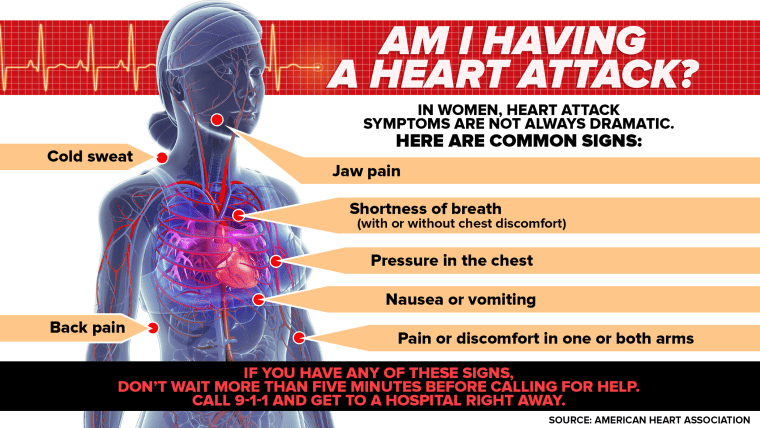When someone as fit as Bob Harper suffers a heart attack while working out, it makes a lot of people wonder if exercise itself is dangerous. Does working out raise your risk of having a heart attack, or even worse, put you at a higher risk of dying from one?
Since health experts are constantly telling us to put more exercise in our daily and weekly routines for our general health, are they wrong?
No, exercise does not increase your overall risk of having a heart attack. No, exercise does not increase your risk of dying from a heart attack. And no, experts are not wrong in constantly telling all of us to exercise more.
RELATED: 5 odd signs you may have a problem with your heart
The benefits of a regular exercise routine are well established. Not only can it help with weight control, but can also help control diabetes, heart disease, osteoporosis, and even balance and muscle mass as we age. Plus, it’s been shown to improve mood, reduce stress responses and help us sleep better.
But for all of these benefits, from time to time we hear of someone like Bob Harper, a very fit individual who not only exercised way more than most of us, but also kept a strict diet regime. Then one day while working out, the 51-year-old collapsed and lost consciousness. A doctor at the gym performed CPR and got him to the hospital, where he was treated and now continues his recovery at home.
How often does this really happen?
And is working out the cause?
Putting it in perspective, a study published in 2015 in the journal Circulation, found that for the 35-to 65-year- olds who had sudden cardiac arrests, only 5 percent happened during a sports activity. That means 95 percent of them happened while not working out.
RELATED: Heart disease is different in women and may be deadlier
So you’re more likely to have a heart attack sitting on the couch than you are running on a treadmill. The study also found your chances of survival actually went up if you did have a heart attack while you were working out. That’s because you were more likely to be around other people who could perform CPR and get an ambulance crew to you quickly.
But there are a few things to keep in mind.

Know your body
Working out and sports does put a temporary stress on your body. If your body is used to it and you're healthy enough for the given routine, you should be able to handle it. If, on the other hand, you don’t work out on a regular basis and suddenly decide to get off the couch and run a personal record 10K or do a high-intensity workout, you might be putting more stress on your body than it can handle.
The key here is to know your body. Ask your doctor about what types of workouts you can do, especially if you have any health issues. Then, when you do start to exercise, begin slowly and work your way up.
In Bob’s case, he thinks his heart attack could be traced back to his family history. According to him, his mother died of a heart attack at an early age, which increased his risks of having the same thing happen.
The bottom line
Working out has overall health benefits that far outweigh the risk of having a heart attack while exercising.
Get checked out by your doctor before beginning a program, especially if you have any health issues. Next time you wake up deciding to do a marathon the next day, throttle back that enthusiasm a bit and begin a program you can build on and sustain for many years to come.